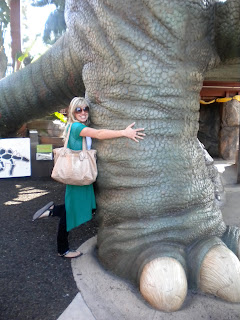
Many benefits and opportunities are available to students if they visit the Discovery Science Center. There are so many fun activities and exhibits for students to get involved with. It makes science enjoyable and easy to understand. It takes real life situations that the students can relate to and brings the scientific knowledge behind how that thing works. I have been to the DSC once before but learned so many new things upon my recent field trip there. They are constantly changing the exhibits and activities that are in the Center and have many people available there to answer questions and assist in the learning and exploring process. The Discovery Science Center is very supportive of education. They list the standards that the activities they offer cover for each grade in their education packet and also on their website. This field trip is very purposeful in providing and educational aspect in a exciting way! For example, this month the focus is on body systems which covers Life Science standards for 5th graders:
2. Plants and animals have structures for respiration, digestion, waste disposal, and transport of materials. As a basis for understanding this concept:
a. Students know many multicellular organisms have specialized structures to support the transport of materials.
b. Students know how blood circulates through the heart chambers, lungs, and body and how carbon dioxide (CO2) and oxygen (O2) are exchanged in the lungs and tissues.
c. Students know the sequential steps of digestion and the roles of teeth and the mouth, esophagus, stomach, small intestine, large intestine, and colon in the function of the digestive system.
d. Students know the role of the kidney in removing cellular waste from blood and converting it into urine, which is stored in the bladder.




